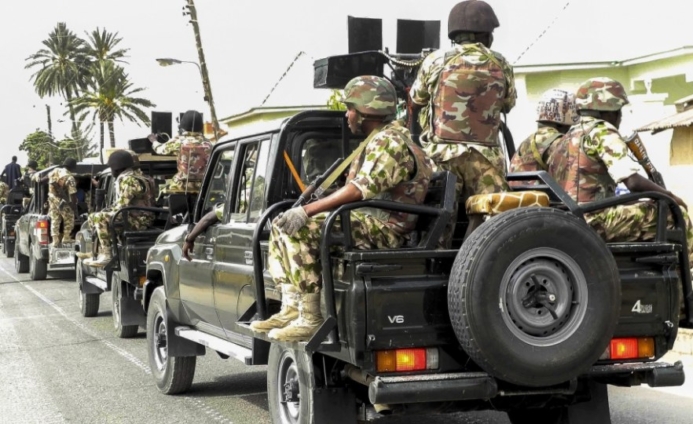Gunmen in Nigeria kidnapped around 100 people, including women and children, in two-weekend attacks in Kaduna state, residents and police said on Monday.
Kidnappings by criminal gangs demanding ransoms have become an almost daily occurrence in Nigeria, especially in the north, with authorities seemingly powerless to stop them.
Kaduna police spokesperson Mansur Hassan confirmed the incident in Kajuru Station village on Sunday night but could not give a figure on those missing. He said security agents had been deployed to rescue the villagers.
Tanko Wada Sarkin, a village head, said 87 people were taken.
"We have so far recorded the return of five people back home who fled through the bush. This attack makes it five times that these bandits are attacking this community" he told Reuters by phone.
Residents said armed men dressed in army uniform arrived in the village undetected because they had parked their motorbikes away from the village.
Aruwa Yau, another resident, said he was captured but released by the gunmen because he struggled to walk due to poor health. He was receiving treatment at a local government clinic, he said.
Gunmen are known to force-march their victims deep into the bush, holding them for up to months while awaiting ransom payments.
The abductions come after an armed gang seized 286 students and staff from a school in early March in Kuriga in Kaduna state and gunmen seized 61 people on March 12 in Buda community.
In Dogon Noma, another community in Kajuru local government area, gunmen abducted 16 people from their homes in an attack on Saturday night, residents said.
Local resident Daniel Shamang said they had not heard anything from the abductors or the missing villagers.
Kidnappings at schools in Nigeria were first carried out by jihadist group Boko Haram, who seized more than 200 students from a girls school in Chibok in Borno state a decade ago.
But the tactic has since been adopted by criminal gangs without any ideological affiliation seeking ransom payments.
The kidnappings are tearing apart families and communities who have to pool their savings to pay the ransoms, often forcing them to sell prized possessions like land, cattle and grain to secure the release of captured loved ones.
Latest Stories
-
Former Bono Regional NPP Organiser donates 13 motorbikes to 12 constituencies
4 mins -
Securities industry: Assets under management estimated at GH¢81.7bn in quarter 3, 2024
9 mins -
Gold Fields Ghana Foundation challenges graduates to maximise benefits of community apprenticeship programme
2 hours -
GBC accuses Deputy Information Minister Sylvester Tetteh of demolishing its bungalow illegally
2 hours -
Boost for education as government commissions 80 projects
2 hours -
NAPO commissions library to honour Atta-Mills’ memory
2 hours -
OmniBSIC Bank champions health and wellness with thriving community walk
2 hours -
Kora Wearables unveils Neo: The Ultimate Smartwatch for Ghana’s tech-savvy and health-conscious users
2 hours -
NDC supports Dampare’s ‘no guns at polling stations’ directive
2 hours -
Police officer interdicted after video of assault goes viral
3 hours -
KNUST’s Prof. Reginald Annan named first African recipient of World Cancer Research Fund
3 hours -
George Twum-Barimah-Adu pledges inclusive cabinet with Minority and Majority leaders
3 hours -
Labourer jailed 5 years for inflicting cutlass wounds on businessman
3 hours -
Parliament urged to fast-track passage of Road Traffic Amendment Bill
4 hours -
Mr Daniel Kofi Asante aka Electrician
4 hours

